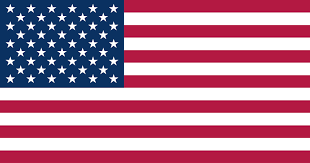STARTING SOLIDS
4 - 6 months
Single grain cereals that are fortified in iron are suggested to start first
Mix 1 teaspoon of single grain cereal with 4-5 teaspoons of breast milk or formula
It’s normal for babies to push food out of their mouth, keep trying
Don’t force baby to eat if they are turning head or shaking their head no
If baby is completely uninterested, wait a week and try again
4 - 8 months
You can introduce pureed veggies, fruits & meats at your preference
Make sure you introduce one food at a time to observe for reactions
AAP recommends introducing allergenic food early to reduce the risk of developing a
food allergy
If there is a positive family history of food allergies, discuss with your doctor before
giving those foods
6 - 8 months
Once baby has mastered single purees, you can offer mixed purees such as salmon and
potato, turkey and green beans
You can also offer single ingredient soft finger food such as cooked peas, mashed
banana, or avocado
Skip salt and sugar as baby does not need this
9 – 12 months
As soon as baby is able, transition to chunkier purees and more finger foods with
textures
Offer as many flavors as possible
Be sure to include meats in their diet to ensure they are getting iron
Solids to Avoid
Avoid these solids until baby is older than 1 year of age
Honey – can cause botulism
Cow’s milk – give formula or breast milk until age 1, cheese and yogurt are ok
Choking Hazards - nuts, seeds, raisins, grapes, hard candy, popcorn, hot dogs, and hard
raw veggies
Water
The AAP recommends introducing a small amount of water in an open cup with meals around 6
months (or older) which can help develop a taste for water and fine motor skills.
Single grain cereals that are fortified in iron are suggested to start first
Mix 1 teaspoon of single grain cereal with 4-5 teaspoons of breast milk or formula
It’s normal for babies to push food out of their mouth, keep trying
Don’t force baby to eat if they are turning head or shaking their head no
If baby is completely uninterested, wait a week and try again
4 - 8 months
You can introduce pureed veggies, fruits & meats at your preference
Make sure you introduce one food at a time to observe for reactions
AAP recommends introducing allergenic food early to reduce the risk of developing a
food allergy
If there is a positive family history of food allergies, discuss with your doctor before
giving those foods
6 - 8 months
Once baby has mastered single purees, you can offer mixed purees such as salmon and
potato, turkey and green beans
You can also offer single ingredient soft finger food such as cooked peas, mashed
banana, or avocado
Skip salt and sugar as baby does not need this
9 – 12 months
As soon as baby is able, transition to chunkier purees and more finger foods with
textures
Offer as many flavors as possible
Be sure to include meats in their diet to ensure they are getting iron
Solids to Avoid
Avoid these solids until baby is older than 1 year of age
Honey – can cause botulism
Cow’s milk – give formula or breast milk until age 1, cheese and yogurt are ok
Choking Hazards - nuts, seeds, raisins, grapes, hard candy, popcorn, hot dogs, and hard
raw veggies
Water
The AAP recommends introducing a small amount of water in an open cup with meals around 6
months (or older) which can help develop a taste for water and fine motor skills.


